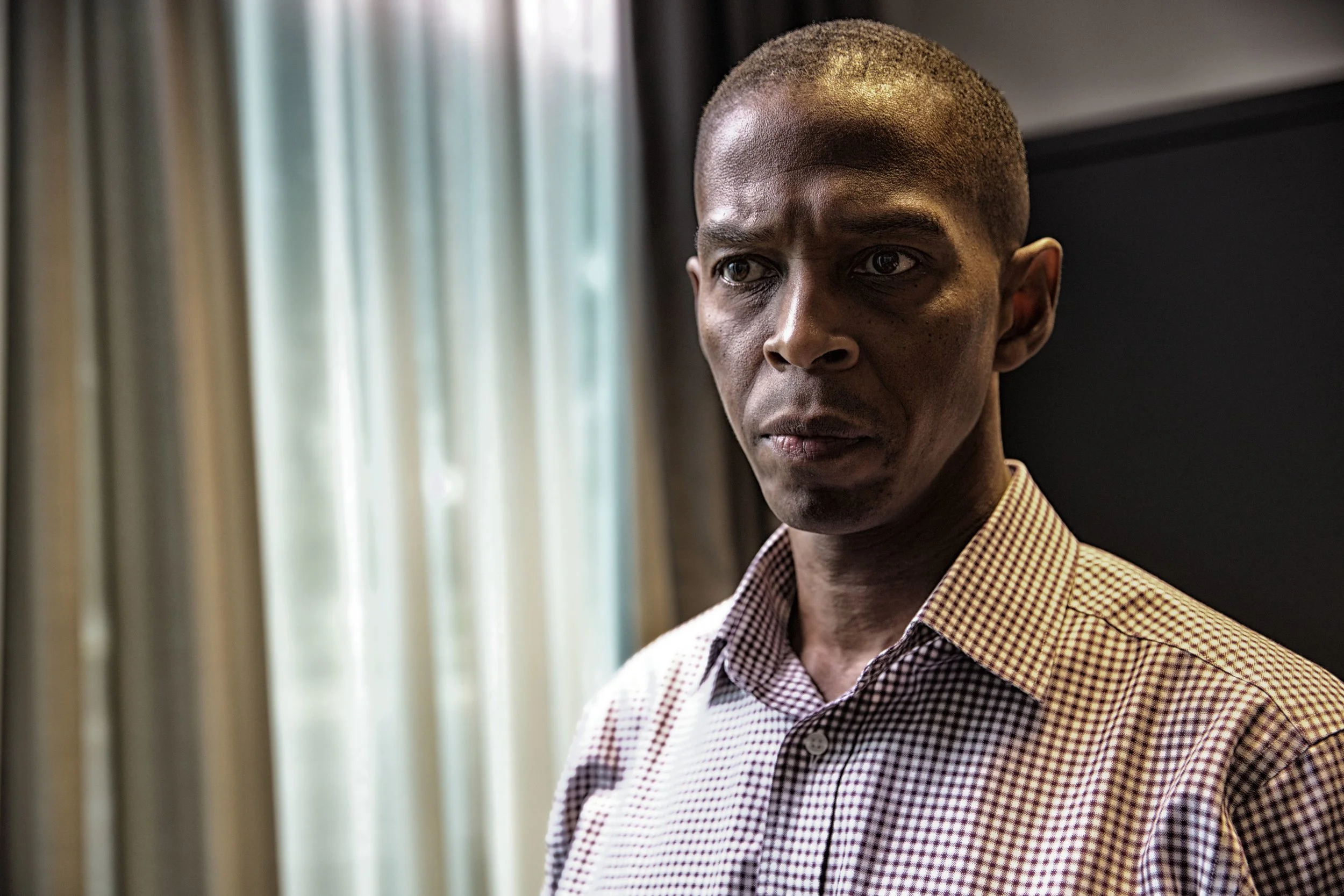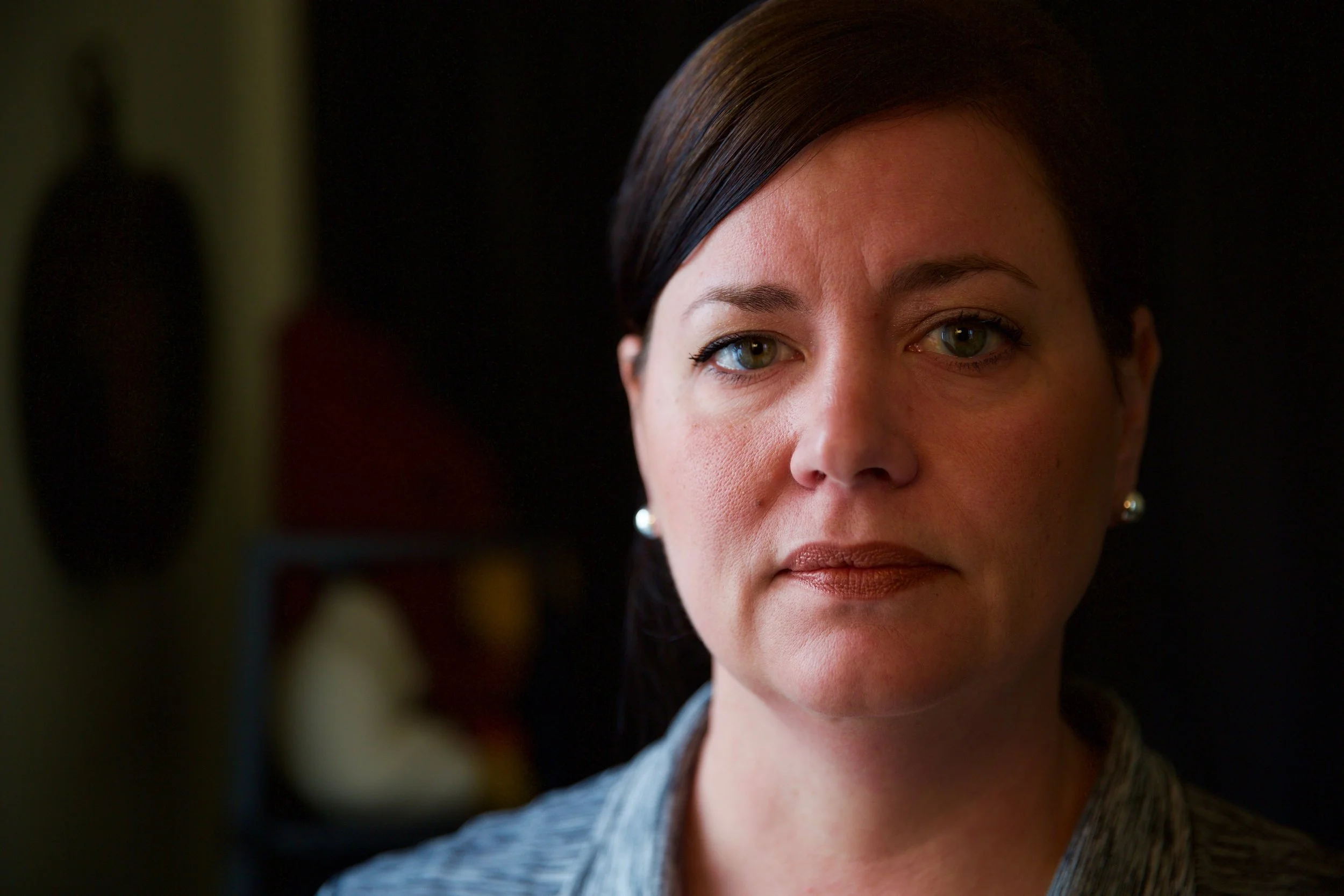Richmond Justice
STORIES + PORTRAITS
Alfred | March 18, 2016
Alfred Durham was appointed Chief of Police for the City of Richmond in February 2015. He worked with the Washington, D.C. Metropolitan Police from 1987 to 2005, and then served as Richmond's Assistant Chief of Police from 2005 to 2007 before returning to the force in Washington. Durham had retired from his 25 years of police work before returning to duty in 2015.
I’m from Washington, D.C., born and raised. Single mom. Straight out of high school, my mom didn’t have much, so I didn’t want to waste her money. I joined the Marine Corps and think it was the best decision I could have made. It made me a man and gave me the discipline I needed to move forward in life.
After serving with the Washington, D.C. Metropolitan Police Department and then the Richmond Police Department, I returned to D.C. But I always had a desire to come back to Richmond. I had bought a home in the Northside in 2005. I just loved the area, the people. It was totally different from D.C.
Things have changed a lot since Richmond started implementing community policing in 2005. Up to that point, there were a lot of police shootings of unarmed black men and the Commonwealth's Attorney was seeking to indict the officers involved. The city's police needed to build trust with residents. Community policing was key to that—and it remains essential.
Community policing is systemic, not reactive. It happens every day. My officers hold job fairs, teach people how to write resumes, and mentor them. We gave out 150 bicycles and helmets to kids in Gilpin Court, then went on a three-mile bike ride with them. It doesn’t get any better than that. But I caution my staff that in implementing community policing, we can’t only give. There has to be a quid pro quo. Communities have to give something back to the police.
Shortly after I was appointed Chief of Police, I went to the Richmond City Justice Center to talk to the residents, because I know I need their help. They may be locked up, but they’re part of the community, too. And I don’t need them committing crimes when they're released. In the pod I visited, I spoke to about 100 men. I met them in plain clothes—not in my uniform. I told them, "I’m a man just like you. I have greater responsibilities. I made better decisions. But I need your help. I want my officers to not have to do their jobs. I want my officers to not have to re-arrest you."
I met one guy who said, “That’s all fine and dandy, you talking about people coming out and doing the right thing. But let me tell you my story.” He was maybe 35 years old. When he was growing up in one of the public housing communities, his mom was on drugs. He had to go out and start selling dope so he could make sure he and his brothers had food on the table. He dropped out of elementary school. He doesn’t have any job skills. He said, "You want me to do what when I get out? How? I’m going to be right back in here."
Everybody who's arrested has a story. We don’t always know that story, especially when we're locking up the same people over and over again. But many of these people have problems because they’re addicted to drugs. As a city, as a community, we’re not able to provide many of them with the substance abuse treatment they so desperately need. And it isn't only treatment that they need. Opportunity, education, job skills—they don’t have so many of the resources that you and I have. What would you do? You need to eat. You need a roof over your head. So maybe you take from the innocent.
“As long as I’m in a position in law enforcement, I’m going to do everything I can so that nobody else feels the pain that I’m feeling right now.”
We meet regularly with the Commonwealth Attorney’s office to discuss how we can reduce the prison population. Our role in this is limited to a certain degree. We can’t turn a blind eye; when people break the law, we have to arrest them. And you’re always going to have crime; crime is not going away. But if officers have relationships with people, then they can go to a Commonwealth’s Attorney and say, "He did what he did, but this is a guy I believe in. This is a guy who needs another chance. Can you be lenient with him?" That’s a role we can play, and I’ve seen it done.
Oftentimes, we in law enforcement are our own worst enemy. It's been a long-standing practice to gauge success based on the number of arrests we make. You’ve got officers who say, “I want to be a crime fighter.” Well, we do that. When I became a police officer in 1987, we fought the war on drugs. Then we fought the war on crime, and then the war on terror. But today, we have to be seen more as guardians than warriors. That’s a big switch. You have to be flexible and you have to know when to turn the warrior mode on or off. As the Chief of Police, it’s my job to give our officers the tools and resources that they need in order to go out there and truly serve the community.
After all, ever since Ferguson, a sleeping giant has been awakened. I see more officers being indicted and charged now than I have seen in my 29 years of law enforcement. Accountability has arrived. To do our part, we've trained everyone on the force on how to recognize and avoid implicit bias. I tell my officers that I’m not tolerating bad behavior. I will terminate your employment if you use excessive force or act with bias, because it takes just one incident to tarnish us as an organization. It’s up to the management—the supervision, the sergeants—to look for the seeds of that behavior, identify the enablers that lead to misconduct, and act immediately. Training and reinforcement are important.
We have a lot of millennials joining the police department, and they’re coming from all over the country. I've had several recruits tell me that they've never had any interactions with African Americans or Latinos. They finish school, join our urban police department, and then their first assignment is in public housing. There’s a fear factor there, and we can’t ignore it; we can’t deny it. We were losing three or four people from each graduating class because when they hit the streets, reality hit them. We have to make time during training to send them into these communities, have them work in a homeless shelter, visit public housing, get to know people in our Latino communities in Southside. Meet and greet. Learn what it’s all about. We can't wait to do this until after we've invested seven months and hundreds of thousands of dollars in equipment, uniforms, and training. We can't have fully-trained new recruits walking out the door saying, "this isn't for me."
I had a younger brother who was murdered in 2005. It was senseless. When I went to bury him, I made a commitment to him that as long as I’m in a position in law enforcement, I’m going to do everything I can so that nobody else has to feel the pain that I’m feeling right now. I may never be able to stop someone from pulling a trigger. But if the community knows that we’re treating people with dignity and respect, then I honestly believe that we can change behavior and earn their trust. I feel like we’re making great accomplishments as a police department. I really feel in my heart—I’m optimistic—that we’re going to have a good year.
—interviewed February 29, 2016
















